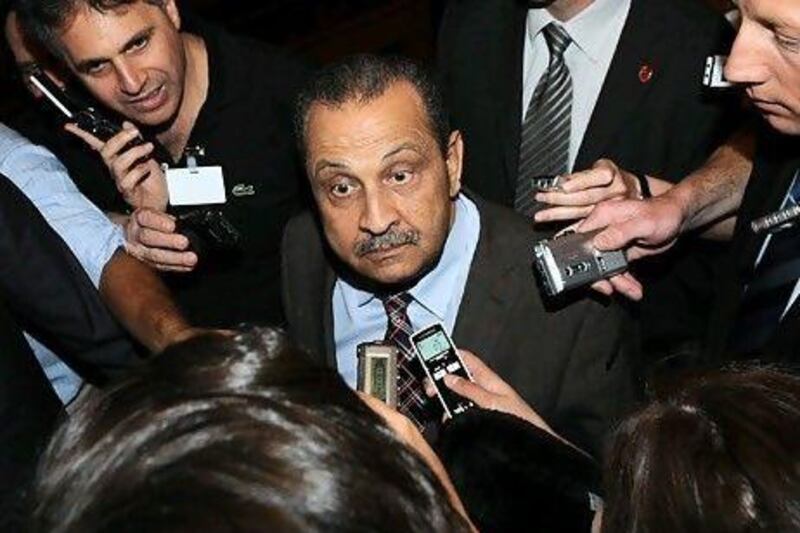"The most dangerous moment for a bad government is when it begins to reform," observed the French political thinker Alexis de Tocqueville. His words apply well to the career of Shukri Ghanem, the former Libyan prime minister and oil minister found drowned in the Danube in Vienna last week.
So far, Austrian police have not found signs that anyone else was involved in Ghanem's death. But the new Libyan government was investigating him for "wasting public funds, making illegal gains and wasting and mismanaging of the national oil production", and was seeking to prepare an Interpol arrest warrant. His insider status led to inevitable speculation that he may have known too much.
Though he defected from the Qaddafi government during the revolution, he was mistrusted by the new government, which viewed him as an intimate of the former rulers who had waited far too long to jump ship.
David Bachmann, an Austrian diplomat who knew Ghanem well, mentioned his excellent manners, fluency in English and high level of knowledge about international politics and economics. However, he was a stringent negotiator, and a colleague regarded him a "small Qaddafi of the oil sector", tough with his employees. At the time of his death, he was setting up a consultancy with two other former oil ministers, Algeria's Chakib Khelil and Iraq's Issam Chalabi.
Ghanem was educated in Libya and the United States and progressed through a variety of jobs at Opec headquarters in Vienna to become its head of research in 1993. It was there that he met Saif Al Islam Qaddafi, who was studying in the city. He became Saif Al Islam's protégé, and through the son's influence on his father, Ghanem returned to Libya in 2001 as economy minister and was appointed prime minister in 2003.
He tried to dismantle Libya's socialist system, and earned the nickname "Shukri Tomato Paste" for his unpopular removal of subsidies on this food item. At the same time, he was implementing Saif Al Islam's efforts to reconcile with the West and have sanctions lifted, although he denied Libyan responsibility for the 1988 Lockerbie bombing.
Ghanem found himself in the uncomfortable position of a technocrat within a Mafia state, in which factions were jostling for power. Saif Al Islam was battling his brothers, notably Muatassim and Khamis, who had much stronger military backing, and the erratic Colonel Qaddafi was not about to permit real reform or allow any clique to gain the upper hand.
Ghanem was demoted in 2006 to chairman of Libya's National Oil Company (NOC) and continued to solicit foreign investment in the oil sector. But by 2009, tough fiscal terms, disappointing exploration results and government interference had dented the high hopes of the international oil companies. Leaked documents revealed by Global Witness speak of systematic underpricing of oil; Ghanem became frustrated with Qaddafi's sons using the NOC as a personal bank. Once again, despite the new towers rising in downtown Tripoli, oil money failed to create jobs or fix a miserable health service.
Ghanem's career raises some troubling questions. In retrospect, it seems clear that the regime was unreformable. But was it wrong to engage with Qaddafi's Libya, given even a small chance that some "reformers" were sincere? And did the mere fact of engagement, and stalled or cosmetic reforms, open a space for the February 17revolution?
How could a technocrat like Ghanem continue within a system of gangsterism? With his death, it may never be clear how deeply he himself was implicated. He said that "I worked in Libya for many years, thinking I could make changes from the inside". But after defecting last May, he reportedly reflected: "I couldn't remain indifferent. So many had been killed, I had to stop."
Robin Mills is the head of consulting at Manaar Energy, and the author of The Myth of the Oil Crisis and Capturing Carbon





